
Press Center
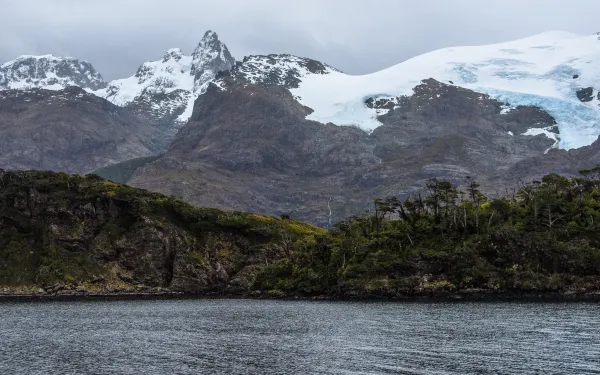
5 years of the Kawésqar National Reserve: pending issues for its protection
Local communities denounce that the area is highly affected by salmon farming, which is failing to comply with environmental regulations.On January 30, 2019, the Official Gazette published the decree creating the Kawésqar National Reserve in Magallanes, which extends over 2,842 hectares between fjords and Patagonian peninsulas. The purpose of this classification was to guarantee the protection of the area, its territory and biodiversity, as well as to establish that it is the duty of the State to ensure its conservation. This year, 2024, marks the fifth anniversary of this milestone, which begs the question: is the reserve's objective being achieved? The community's claimsWith the qualification of National Reserve, this area was separated from the Kawéskar National Park, which offers broader protection. In the opinion of the local communities, this administrative division determines in a whimsical way what to prioritize and separates the land from the sea, as if they were independent elements, which causes "divisions and confusion to grow at all levels," says Eric Huaiquil Caro, a member of the Kawésqar Communities Kawésqar Family Groups Nomads of the Sea. He also says that the "agreements that were made in the indigenous consultation have not been responded to." Finally, Caro asks that the conservation of this reserve be done "without salmon farms and we hope that this will be established in the Management Plan that will be submitted for consultation in March 2024." An overstressed areaWithin the Kawésqar National Reserve lie the richest kelp forests in the country, an ecosystem considered key to combating climate change, as they can absorb high levels of carbon dioxide and regenerate marine systems. Although the State must guarantee their protection, the area is experiencing great pressure from the salmon farming industry. For example, there are 133 approved concessions in the entire Magallanes Region and 85 in process, of which 68 approved and 57 in process are in the Kawésqar National Reserve, "which seems unusual to us because it has been proven that the salmon farming industry is neither sustainable nor compatible with the ecosystemic care of the reserve. This is fundamental to the creation of the Reserve's Management Plan, which is currently being designed and which should establish the incompatibility of the industry within the zone's protection mandate, as documented in the report we have prepared together with the communities," says Cristina Lux, an attorney with the Interamerican Association for Environmental Defense (AIDA)."Forty-three percent of the concessions approved within the Kawésqar National Reserve have presented anaerobic conditions within the framework of their operations, according to information obtained from the Environmental Reports for Aquaculture. This means that they suffer or have suffered total or partial loss of oxygen, which affects the living conditions of all of the area's biodiversity," adds Estefanía González, Campaigns subdirector at Greenpeace Chile.The impact, explains Sofía Barrera , an attorney for FIMA, is "enormous and highly destructive.""To begin with, these farming centers are concentrated in just seven sectors (Staines Peninsula, Taraba Sound, Poca Esperanza Strait and Vlados Channel, Glacier Sound, Skyring Sound, Desolation Island and Xaltegua Gulf), which also concentrates their synergistic effects. Some of these are the impact of boat routes, the killing of sea lions to prevent them from attacking the salmon cages, the overproduction of salmon, the presence of garbage outside the concession polygons and the detection of the ISA virus in the farming centers, which ends up making the rest of the marine ecosystem sick, something that has been recognized by Environmental Courts," adds Barrera. "In addition, the dispersion of organic matter from the cultivation centers causes eutrophication and harmful algal bloom events (HAB), generating significant changes in water quality and affecting marine life," adds González.In the opinion of the representatives of these three organizations, despite the legal prohibitions and environmental requirements, the fact that many of these projects have been submitted and approved through environmental impact statements raises legal and political questions. "Why are the authorities not ensuring the real care of this area, whose interests are being taken care of, and how is the salmon industry influencing our authorities," asks Barrera.Unfortunately, González adds, when explanations have been requested, "we have not received answers or certainty. That is why it is urgent to advance towards a management plan that really protects this ecosystem and does not allow more centers that put biodiversity at risk." Press contactVíctor Quintanilla (AIDA), [email protected], +521 5570522107
Read more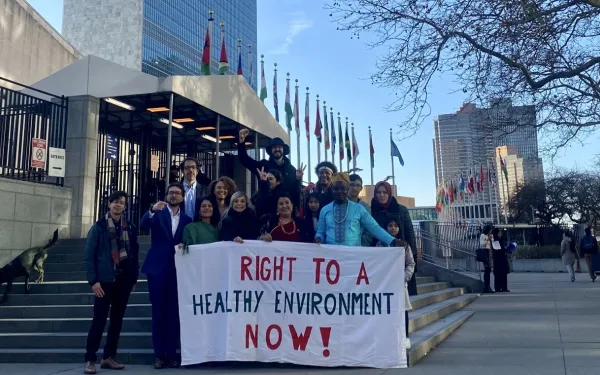
Right to a Healthy Environment Global Coalition awarded UN Human Rights Prize
New York — Today the Global Coalition of Civil Society, Indigenous Peoples, Social Movements, and Local Communities for the Universal Recognition of the Right to a Clean, Healthy, and Sustainable Environment accepted the prestigious 2023 United Nations Human Rights Prize in a ceremony in New York. This month also marks the 75th anniversary of the Universal Declaration of Human Rights.The coalition is recognized for its vital role in advocating for the universal recognition of the right to a healthy environment by the UN General Assembly (UNGA) in 2022. The UN Human Rights Prize is awarded once every five years to several recipients at a time. This year is the first time since its inception in 1966 that it has been granted to a global coalition.The prize was presented at a ceremony with UN leadership, including General Assembly President Dennis Francis, Secretary-General António Guterres, and High Commissioner for Human Rights Volker Türk. The award was accepted by a delegation of representatives illustrating the diversity of the coalition’s members.The ceremony took place alongside a workshop with advocates from around the world and UN and State representatives to assess progress since the recognition of the right to a healthy environment and to discuss next steps to build on that progress and ensure the effective promotion of the right.Read reactions to the announcement from the members of the coalition here.At the ceremony, the following acceptance speech was delivered by a representative of the coalition: We, Civil Society, Indigenous Peoples, Social Movements, and Local Communities in coalition for the Universal Recognition of the Human Right to a Clean, Healthy, and Sustainable Environment are honored to receive this prestigious prize acknowledging our vital role towards the UN recognition of this human right.This incredible achievement was only possible thanks to the tireless collaborative efforts of thousands of people from 143 countries who joined for this historic milestone. A process that started fifty years ago by visionaries gained momentum in 2020 when we called the UN to finally recognize this human right.First, this prize highlights the importance of truly collaborating to advance the imperative protections of our planet and our rights. No single organization, movement, or person would have been able to make it on their own, but together, our global and diverse coalition made it possible. We are humbled and proud that our efforts are recognized, evidencing to the world that working together is possible and worth it.Cooperation is just as needed for States, none of whom can, on their own, solve today’s multiple planetary crises of biodiversity loss, climate change, and pollution, aggravated by increasing inequalities. We call on States to effectively collaborate towards the solutions needed.Second, this prize reinforces the historic recognition of the right to a clean, healthy, and sustainable environment as a human right. That requires protecting the dignity of all persons, individually and collectively, substantively and procedurally, from human-made environmental degradation and climate change impacts. Affirming also the interdependence and indivisibility of human rights and the urgency to protect them from environmental threats, including systemic risks, irreversible degradation, and loss and damage.The UN recognition clarifies international human rights law and is now a powerful instrument for States to fulfill their obligations, enhance environmental justice, and guarantee all rights, especially of those in more vulnerable situations.As we witness increasing ecosystem degradation and lives lost due to pollution and climate change, this universal right can guide us toward stronger policies and practices, based on gender and intergenerational equity and the empowerment of all persons and communities. It can help in better protecting those defending the environment, including Indigenous Peoples, children, women, peasants, and other people working in rural areas.We are profoundly grateful for the recognition of our collective efforts, inspiring governments, businesses, and institutions to fulfill their responsibility and effectively protect our universal right to a clean, healthy, and sustainable environment. This is our priority, one we invite you to commit to. Thank you! Press contactsVíctor Quintanilla (Mexico), Content Coordinator at the Interamerican Association for Environmental Defense (AIDA), [email protected] Furbank, Communications Campaign Specialist at the Center for International Environmental Law, [email protected] Esther de la Rosa, Communications Coordinator at ESCR-Net [email protected]
Read more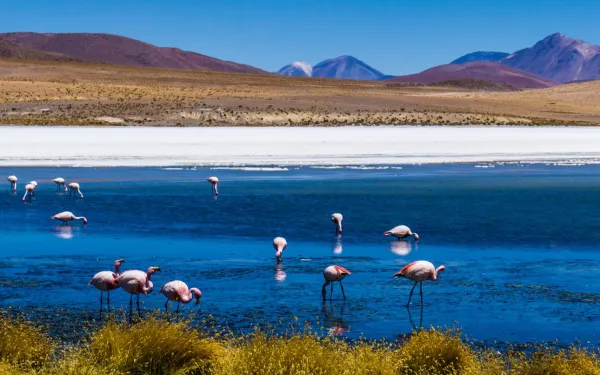
The Alliance for the Andean Wetlands brings together organizations for the protection and conservation of wetlands
The alliance seeks to protect the water, biodiversity, territories and ways of life that depend on these ecosystems in Latin America, especially in Argentina, Bolivia and Chile. With the aim to promote the protection and conservation of wetlands -as well as the water, biodiversity, territories and livelihoods of indigenous and peasant communities that depend on them- the Alliance for Andean Wetlands (Alianza por los Humedales Andinos) brings together the Fundación Ambiente y Recursos Naturales (FARN) and the PUCARÁ Assembly (Pueblos Catamarqueños en Resistencia y Autodeterminación), of Argentina; the Centro de Documentación e Información de Bolivia (CEDIB) and Empodérate, of Bolivia; ONG FIMA, Defensa Ambiental and Fundación Tantí, of Chile; and the Interamerican Association for Environmental Defense (AIDA), a regional organization.The Andean wetlands - including salt flats, lakes and lagoons - are recognized worldwide as ecosystems of high environmental and social significance. They are also extremely fragile due to their characteristics, whose central element is water, a common good that controls the environment and wildlife. Their vulnerability also rises from the threats they face, including the climate crisis and the negative impacts of extractive activities such as the mining of lithium, copper and other minerals considered "critical" for the transition to new forms of energy generation.In this sense, the increase in demand for lithium in the global north has set in motion an accelerated process of extraction and production at a global level, focused on regions rich in this mineral, such as the Andean salt flats of Argentina, Bolivia and Chile, which are home to more than 53% of proven global reserves.From November 30 to December 12, representatives from nearly 200 countries will meet in Dubai, United Arab Emirates during the twenty-eighth United Nations Climate Change Conference (COP 28) to continue advancing the implementation of the Paris Agreement, which seeks to strengthen the global response to the climate emergency.The protection of wetlands is crucial in this task because they are ecosystems that act as natural carbon sinks, helping to mitigate the crisis.Accelerating the energy transition will be one of the main lines of action at COP 28Faced with this global trend, the alliance promotes a just, participatory and popular socio-ecological transition with a long-term vision, prioritizing integrated water management under a socio-environmental and climate justice approach. Thus, it supports and accompanies local communities and organizations in the care of Andean wetlands and in the construction of socioeconomic alternatives that go beyond mining extractivism.The alliance also seeks to ensure the participation of communities and their access to complete, truthful and transparent information, as well as to provide information to the global society - involving organizations, States and the private sector - highlighting the value of the Andean wetlands and the multiple threats they face.To achieve its objective, the alliance employs pedagogical, legal, research, advocacy, communication and mobilization strategies collectively and in dialogue with communities and organizations. Recognizing the differentiated impacts of the climate crisis on women, girls, sexual dissidents and other vulnerable groups, the alliance incorporates a gender perspective in all its activities. Press contacts:Víctor Quintanilla, AIDA (regional), [email protected], +521 5570522107Carlos Ulloa Fuentes, Fundación Tantí (Chile), [email protected] +569 37614815Rocío Wischñevsky, FARN (Argentina), [email protected], +541159518538Manuel Fontenla, Asamblea PUCARÁ (Argentina), [email protected], +54 9 3834790609Faviola Rivera Seifert, Empodérate (Bolivia), [email protected], +591 77129989Oscar Campanini, CEDIB (Bolivia), [email protected], +591 70344801
Read more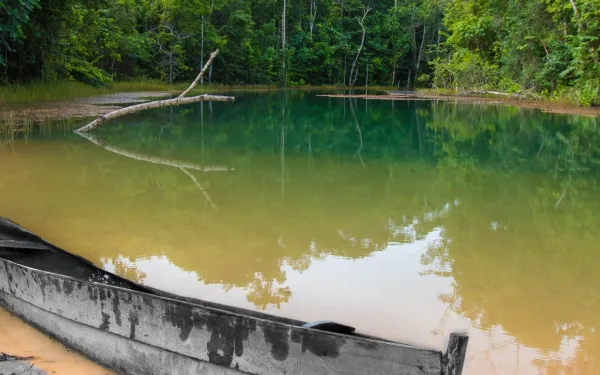
Solidarity note for social movements, organizations, and rights advocates who are victims of criminalization attempts by the company Belo Sun Mineração Ltda.
The undersigned member organizations of the Volta Grande do Xingu Alliance (AVGX) call on partners, civil society organizations, legal experts, and researchers to support and strengthen individuals and movements that, due to their tireless defense of peoples, biodiversity, and the existence of the Volta Grande do Xingu, are facing intimidation and attempted criminalization by the company Belo Sun Mineração Ltda.We need to show large corporations that civil society in Brazil and abroad is united around this cause. We will not step back in protecting the environment and human rights in the face of threats. Sign this note and join us in the protection of the Amazon, the Xingu River, and its defenders!More information below:On October 17, 2023, the mining company Belo Sun Ltda., the Brazilian subsidiary of the Canadian company Belo Sun Mining Corp., filed a criminal lawsuit against more than 30 people, most of them small-scale farmers. These individuals, backed by are questioning the acquisition of land by the mining company within the Ressaca Settlement Project, in the municipality of Senador José Porfírio - Pará, and demanding that this land fulfill its agrarian and social function. These concerns are the basis of a lawsuit in federal court by the federal and local Public Defender’s Offices.The criminal complaint is a clear attempt to silence environmental and human rights defenders. This silencing is intensified by the presence of the company's armed security in the territory. It is also an attempt to criminalize organizations that monitor and denounce the destruction caused by large projects in the Volta Grande do Xingu. On November 15, a group of 25 local movements and organizations, mainly based in Altamira, Pará, issued an open letter condemning the criminalization of farmers, social movements, and civil society organizations promoted by the Canadian mining company Belo Sun. It is essential that the terms of this letter be strengthened and echoed nationally and internationally.This is not the first time that Belo Sun Mineração Ltda. has intimidated civil society organizations and human rights defenders. In 2022, the company filed a lawsuit against a university professor who had exposed the risks that the Volta Grande Project would pose to the Xingu River and its people. In mid-2023, Belo Sun sent an extrajudicial notice to the National Coordination of Indigenous Peoples of Brazil (Apib), attempting to silence the organization's complaints about the risks posed by the mining project in the Volta Grande do Xingu. This notice came shortly after the release of a report on Belo Sun by the legal team of the Apib and an international advocacy action at the UN in Geneva carried out by the Alliance for the Volta Grande do Xingu, a coalition of which Apib is a part. The action aimed to expose corporate abuses by Canadian companies in the Brazilian Amazon and in eight other countries in Latin America and the Caribbean. Regarding Belo Sun's activities in the Volta Grande do XinguBelo Sun aims to establish a massive open pit gold mining project overlapping the PA Ressaca region, on the banks of the Xingu River, with the goal of operating the largest gold mine in Brazil. The so-called Volta Grande Project (PVG), if approved, would substantially and potentially irreversibly impact a territory already severely affected by the Belo Monte mega-dam, as well as affecting the lands and traditional ways of life of various indigenous peoples, rural settlements, and riverside communities in this region.Several lawsuits have been filed documenting the irregularities committed by Belo Sun, including the absence of free, prior, and informed consultarions and consent from the affected indigenous and traditional communities; the illegal acquisition of plots within the PA Ressaca; the harassment and violation of the right to free movement and access to the territory of local communities; and the lack of competence of the State of Pará to issue the environmental license for the PVG. Its licensing has been suspended since 2017 by the decision of the Federal Regional Court of the 1st Region, and on September 11, 2023, it was transferred to the jurisdiction of Ibama, a federal agency. DemandsWe, citizens, civil society organizations, and representatives of social movements who support this statement, condemn the criminalization promoted by Belo Sun Mineração Ltda. We express our solidarity with the victims of this process and emphasize our understanding that:We support the terms of this petition and join voices in denouncing that intimidation and criminalization of human rights defenders, activists, researchers, and leaders of social movements by Belo Sun are unacceptable, and therefore, we support the terms of this petition.The Land Reform Project (Projeto de Assentamento) Ressaca is an area designated for agrarian reform and local family farming located in a region already highly vulnerable from a socio-environmental perspective, making it incompatible with the installation of a large-scale open-pit gold mining project like Belo Sun's Volta Grande Project.The public authorities must take necessary measures to empower the families, communities, and peoples of the Volta Grande do Xingu, ensuring their effective participation in governance and the protection of the territory. The member organizations of the Volta Grande do Xingu Alliance issuing this statement and calling for endorsements are:Articulação dos Povos Indígenas do Brasil - APIBMovimento Xingu Vivo - BrasilAmazon WatchInterametican Association for Environmental Defense - AIDAInternational RiversEarthworks Justiça GlobalMiningWatch Canada Join us in protecting the Amazon, the Xingu River, and their defenders!Sign the note of international solidarity against the judicial harassment being carried out by Belo Sun: https://forms.gle/tzUzR47v72jsdEPN8
Read more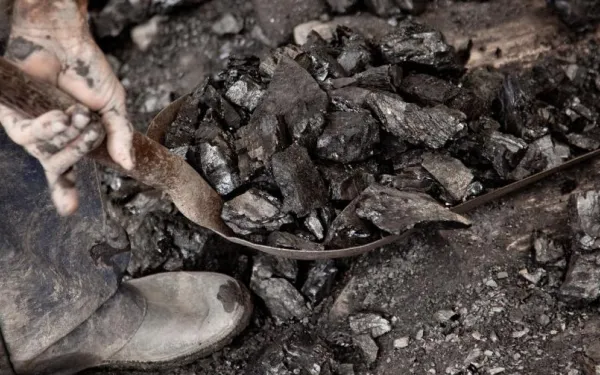
High court orders Colombian government to adopt concrete actions for climate crisis mitigation and adaptation
After evidencing that the Ministry of Environment failed to comply with climate obligations contained in the national legislation, the State Council ordered the entity to take concrete measures to meet these commitments within one year. This is the final decision in the litigation filed by various stakeholders demanding the State to include the climate impact of the coal sector in its climate crisis management. The State Council ordered the Ministry of Environment and Sustainable Development to adopt, within one year, specific measures to mitigate and adapt to the climate crisis in order to fulfill part of the country's climate commitments. With this ruling, the High Court resolved a compliance action filed on May of this year by a coalition of civil society organizations, think tanks and universities to require the State to include the impacts of the coal production chain in the climate policy.In the decision, the State Council acknowledges the Ministry's failure to comply with the norms to include climate impacts in projects with environmental management and control instruments, the lack of regulations regarding emissions from the coal sector, and the absence of a report and evaluation of the impact of the implementation of nature-based solutions programs and projects.Although the decision could have been more ambitious by also recognizing other alleged non-compliances that were proved in the litigation, the high court issued four fundamental orders to be complied by the Ministry of Environment:Inclusion of climate change adaptation and mitigation considerations in the environmental management and control instruments of projects, emphasizing the quantification of greenhouse gas (GHG) emissions and the contributions of environmental compensation measures to the Nationally Determined Contributions, submitted by the State to the United Nations Framework Convention on Climate Change.Adopt a national guideline for formulating, developing, monitoring, reporting and evaluating the impact of implementing nature-based solutions programs and projects. This must include climate change management, integration with an ecosystem approach, contributions to the economy, benefits to biodiversity and human communities.Determining the methodologies for calculating direct and indirect emissions that must be reported, the methods, tools, processes and periodicity of reporting on GHG emissions, and the information and documentation required for GHG inventories.Regulation of the conditions for the verification, certification and registration of GHG emissions, emission reductions and removals as well as determination of the follow-up and control procedures foreseen. Based on the result, this litigation is the first successful case of strategic and climate litigation in the continent, as it was possible to prove that the State failed to comply to specific climate commitments, and has succeeded to order to one of the competent authorities to adopt concrete actions for appropriate climate management. The strategy employed and the precedent achieved can well be replicated in other countries in the region.The enforcement action was filed with the Administrative Court of Cundinamarca by the Interamerican Association for Environmental Defense, the José Alvear Restrepo Lawyers Collective, Censat Agua Viva, Centro de Investigación y Educación Popular, POLEN Transiciones Justas, Universidad de Magdalena and researcher Paola Yanguas.In July, the court issued the first-instance ruling in this case. In it, it issued eight orders requiring not only the Ministry of Environment—but also the Ministry of Mines and Energy—to comply with Law 1931 of 2018 and Law 2165 of 2021, which set out the minimum actions that Colombia must take to meet its climate commitments at international level.This litigation showed that over the last six years, the government has omitted the obligations contained in these laws, particularly in relation to the climate impact caused by the coal sector.The case was subsequently referred to the State Council, whose final decision confirmed part of the ruling of the Administrative Court of Cundinamarca.As the largest coal exporter in Latin America, Colombia is obliged to include in its climate commitments the true extent of the impact of the coal sector. This was demanded by the communities of La Guajira, which have been directly affected for decades.Although these communities did not sign the litigation, they sponsored it and accompanied its presentation with traditional dance and music. Press contact:Víctor Quintanilla-Sangueza (Mexico), AIDA, [email protected], +521 5570522107
Read more
Report reveals shocking rights violations by Canadian corporations in Latin America
Geneva - A groundbreaking report titled "Unmasking Canada: Rights Violations Across Latin America" was unveiled at the United Nations Universal Periodic Review Process (UPR) pre-session in Geneva, spanning from August 28 to September 1, 2023. This in-depth investigation highlights extensive human rights and environmental breaches by Canadian companies in Latin America and the Caribbean. Compiled through the collaboration of over 50 civil society organizations, the report implicates 37 Canadian projects across nine countries in the region. Of these, 32 projects have been found responsible for environmental rights infringements, including 105 oil spills in Peru's Block 192, directly linked to Frontera Energy. Additionally, the right to Free, Prior, and Informed Consent was violated in 26 projects, exemplified by dubious practices in Ecuador's Warintza project managed by Solaris Resources Inc. Violent confrontations tied to 16 projects are also highlighted, with a notable incident in Peru in July 2023, where 20 individuals were injured. While Canada positions itself as "climate forward," this report challenges such a portrayal, emphasizing Canada's protection of extractive industries that are responsible for significant human rights and environmental harm. In response to these findings and anticipating Canada's UPR on November 10, 2023, the report advocates for UN member states to impose legally binding resolutions on Canada, compelling the nation to address corporate misconduct overseas. Mauricio Terena, Legal Coordinator from Brazil’s Association of Indigenous People (APIB), said: "We have come here to denounce the involvement of Canadian companies in human rights violations in Brazil, particularly the case of the Belo Sun mining company in Pará, which aims to establish the country's largest open-pit gold mine. While Canada portrays itself as a defender of human rights and the environment, its actions contradict this narrative, especially when infringing upon the rights of indigenous peoples in Brazil. The discrepancy becomes evident when we realize that Canada has not signed the ILO's Convention 169. Therefore, we hope that the states with which we are in dialogue recognize this reality and urge Canada to reassess the operations of its corporations, seeking tangible action in defense of indigenous peoples and traditional communities". Addressing the UPR's function, where every four years UN member states review each other's human rights records, Latin American civil society representatives presented new recommendations for Canada. These recommendations underscore the need for Canada to introduce binding and comprehensive legislation centered on due diligence and corporate accountability. This encompasses the oversight of financial institutions and Canadian corporations throughout their global supply chains, aiming to prevent, mitigate, and penalize corporate misdeeds while ensuring victims of such practices overseas can seek justice and full reparation. "We hope that the UPR (Universal Periodic Review) process will establish itself as another strategy in our defense of indigenous peoples' rights, serving as a tool for the protection of human, indigenous, and environmental rights. It is essential to acknowledge that corporations involved in such violations are committing criminal acts. These actions should not be viewed merely as isolated incidents, but rather on a broader scale, as violating indigenous rights impacts all of humanity. Thus, beyond national and international laws, these transgressions should be seen from a more comprehensive perspective. It is crucial for states to commit, within the UN framework, to join a global mechanism where they recognize the need to monitor and mutually hold each other accountable for actions that uphold human, indigenous, and environmental rights", said Maria Judite "Kari" Guajajara, Legal Advisor at the National Indigenous Organization of the Brazilian Amazon (COIAB). This isn't the first instance of Canada facing allegations within the United Nations Universal System due to the activities of its corporations abroad. Six recommendations were directed at Canada during the 3rd cycle of the Periodic Review. These addressed, among other concerns, Canadian businesses' vital assurance and protection of human rights. Nevertheless, even after pledging to meet these recommendations, Canada consistently failed to fulfill its extraterritorial obligations, neglecting to take effective action to supervise corporate activities domestically and internationally. Gisela Hurtado, Advocacy Manager at Amazon Watch, commented: "Our report unveils the disturbing reality behind Canada's corporate endeavors in Latin America. While Canada boasts of ethical business conduct, the documented evidence reveals a starkly contrasting picture – one where profit is prioritized over people and the environment. Urgent change is paramount." The report's presentation in Geneva was spearheaded by a delegation that included Mauricio Terena from APIB; Maria Judite "Kari" Guajajara from COIAB; Josefa de Oliveira, a Popular Educator with Movimento Xingu Vivo Para Sempre; Lorena Aranha Curuaia, Vice President of the Iawá Community; ; and Brayan Mojanajinsoy Pasos, General Secretary of the Association of Indigenous Councils of the Municipality of Villagarzón Putumayo (ACIMVIP). The delegation was further supported by representatives from organizations including Amazon Watch, AIDA (Regional), Earthworks (US) Gaia (Colombia), and Ambiente y Sociedad (Colombia). Short summary involving Canadian companies involved in rights violations highlighted in the report 1. Frontera Energy in Lote 192 in Peru: - Over 2,000 sites contaminated, affecting 26 Amazonian indigenous communities. - Proposed activity closure plan doesn’t include reparations for affected communities. 2. Mineradora Argentina Gold SRL (joint venture between Barrick Gold and Shandong Gold): - Responsible for at least five toxic substance leakages, including cyanide and arsenic, into the Jáchal River in Argentina from the Veladero mine. - The project is in violation of the Glacier Law due to its location in a glacial zone and affects the UNESCO recognized biodiversity heritage site, the San Guilhermo Reserve. 3. Belo Sun's Volta Grande project in Brazil: - Cumulative impacts with the Belo Monte hydroelectric dam, located less than 10 km away from the prospected mining site; - Armed security forces hired by the Canadian mining company to monitor local leaders and hindering their freedom of movement; - Utter disrespect to Free, Prior and Informed Consent of Indigenous and riverine communities; - Imminent and irreversible risks of an environmental tragedy if toxic waste spills into the Xingu River due to a potential dam break, given the lack of sysmic and tailings dam safety studies. - Direct impact on communities, their traditional livelihoods, and local ecosystems. 4. The Mina Varadero in Chile: - Contaminated water sources with mercury, impacting rural populations and children. 5. ISAGEN - Brookfield Asset Management's Hidrosogamoso dam in Colombia: - Significant harm to local ecosystems and communities. 6. American Lithium's mining projects (Falchani, Macusani, and Quelccaya) in Peru: - Regularly release toxic residues, affecting over 700,000 people and contaminating the Lake Titicaca and Amazon River basins. 7. Solaris Resources Inc.'s Warintza mining project in Ecuador: - Ignored the territorial rights of the Shuar Arutam indigenous people and adopted divisive tactics. 8. Mining project of Ixtaca in Mexico: - Suspended due to violations of indigenous rights. 9. El Pato II mining project in Guatemala: - Affected the Poqomam Maya and mestizo communities without proper prior consultation. 10. Libero Copper's Mocoa mining project in Colombia: - Directly harmed the ancestral territory of the Inga people, violating their rights. 11. Cosigo Resources LTD's Machado gold extraction project in Colombia: - Severely impacted sacred indigenous sites in the Yaigojé Apaporis territory. 12. Barrick Gold's Pueblo Viejo mine in the Dominican Republic: - Forced the displacement of 65 local families due to the El Llagal waste dam. 13. Mining projects of La Plata by Atico Mining Corporation and Las Naves by Curimining S.A. (a subsidiary of Adventus Mining Corporation) and **Salazar Resources Limited in Ecuador: - Tried legalizing their operations despite violating national and international human rights laws, leading to confrontations and injuries. 14. Petrotal's Lote 95 in Peru: - Protests demanding community rights resulted in several deaths by police forces guarding the oil field. 15. Equinox Gold in Brazil: - Concealed data regarding their operations and impacts, including a dam break. - 4,000 of people directly impacted by toxic waste resulted from the dam break that contaminated local Amazonian rivers, violating the right to a clean environment and adequate access to drinking water. - Criminalization of local community leaders that protested for the right to water. 16. Gran Tierra Energy in Ecuador: - Conducted explorations without proper information dissemination in the Charapa, Chanangué, and Iguana blocks.
Read more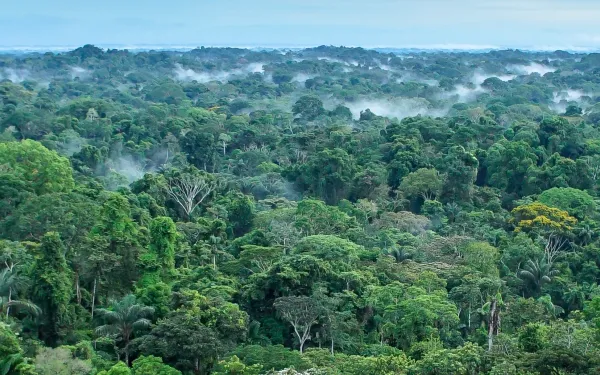
Protecting Ecuador’s Yasuní National Park can bolster the global just energy transition
What the people of Ecuador decide in an August 20 referendum has the potential to not only slow oil exploitation in the Amazon, but also to generate a transformative impact at the national and international levels, recognizing the value of the key ecosystem for stabilizing the global climate and the need to transition to renewable and sustainable energy production. On August 20, in a popular consultation, the Ecuadorian people will have the opportunity to decide on a definitive halt to oil exploitation in a part of Yasuní National Park, one of the most biodiverse areas of the planet, located in the Amazon rainforest. The consultation seeks to stop oil extraction in the ITT block (Ishpingo, Tiputini, Tambococha), one of three in production within the park. Yasuní National Park is a UNESCO Biosphere Reserve. Multiple scientific studies have demonstrated its value in terms of biodiversity and its significance as the home to the Waorani people, and to the Tagaeri and Taromenane indigenous groups in voluntary isolation. The Amazon is an interconnected region shared by eight countries—Bolivia, Brazil, Colombia, Ecuador, Guyana, Peru, Suriname and Venezuela—and by French Guiana, a French overseas department, and what happens in one part of it affects the rest. Moreover, as a megadiverse region that serves as a global climate stabilizer, the importance of the Amazon rainforest is global. The eyes of the world will be watching to see if Ecuador chooses to protect its Amazonian territory, which would have a transformative impact not only in the country, but also across Latin America and the world. Protecting Yasuní would send a clear message that recognizes the ecological and social value of the Amazon to materialize the necessary energy transition and the protection of human rights. Javier Dávalos, AIDA's Climate Program Coordinator and Ecuadorian attorney, reflects: "After years of relentless struggle by social organizations and indigenous movements, Ecuador has the chance to make important progress in protecting an ecosystem that is key to adapting to and mitigating the global climate crisis, as well as to the survival of traditional and indigenous peoples, including those in voluntary isolation. To protect the climate for this and future generations, fossil fuel production must begin to decline immediately, and renewable energy production must be accelerated as part of a just transition. Ecuador can be a pioneer, leaving behind the environmental and social sacrifice zones promoted by the fossil fuel industry and showing the world how civil society can promote the just energy transition that the world needs. It can be an example of how to build energy alternatives based on guaranteeing human rights and the rights of nature, and how to effectively combat the triple crisis the world is facing: climate change, biodiversity loss and pollution." Context The initiative to put a definitive stop to oil exploitation in part of the Amazon is in line with the recommendations of the Intergovernmental Panel on Climate Change and the International Energy Agency that one-third to two-thirds of oil reserves be left in the ground in order to keep the increase in the average temperature of the planet below 2°C, compared to pre-industrial levels, and thus avoid catastrophic effects. The popular consultation in Ecuador takes place a few weeks after the UN Secretary General, Antonio Guterres, declared the beginning of the era of "climate boiling", pointing out the need for concrete changes to face the emergency and crisis caused by global warming. In addition, this consultation comes shortly after the conclusion of the Amazon Summit in Brazil, where the eight Amazonian countries discussed how to chart a sustainable path forward for the Amazon rainforest. "It is time to phase out fossil fuels to protect the Amazon," said Gustavo Petro, President of Colombia, who recently urged Amazonian countries and their partners in the Global North to commit to phasing out fossil fuel exploitation in order to protect the right to a just transition and accelerate the transition to a post-oil economy. press contact: Víctor Quintanilla (Mexico), AIDA, [email protected], +521 5570522107
Read more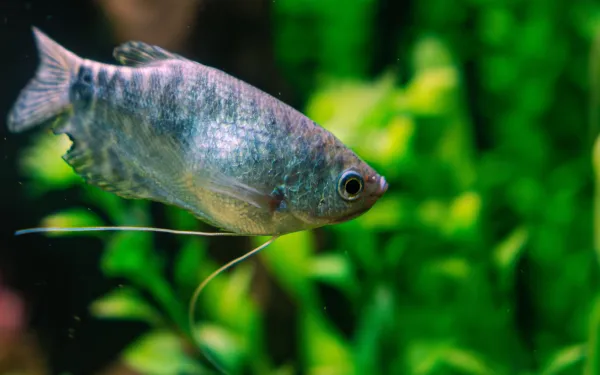
Mexican environmental authority violates Mexico’s highest court and international obligations when reissuing a permit for a port expansion that threatens the Veracruz Reef System
In a legal brief, AIDA and Earthjustice argue the Secretary of the Environment failed to properly evaluate the environmental impact of the project to the reef, a UNESCO World Heritage Site, as required by Mexico’s highest court. Mexico City, Mexico – Today, AIDA (Interamerican Association for Environmental Defense) and Earthjustice filed a brief with the Fifth District Court of Veracruz to help protect the Veracruz Reef System from the Veracruz port expansion project. When reauthorizing the project, the Secretary of the Environment and Natural Resources (Semarnat) not only failed to comply with a ruling of the Supreme Court of Justice of the Nation, but also ignored Mexico’s international obligations regarding environmental protection and human rights, including the human right to a healthy environment guaranteed in the Mexican Constitution. This was demonstrated by AIDA and Earthjustice in a legal brief (Amicus Curiae or "Friend of the Court") filed before the Fifth District Court of Veracruz. In it they request that the court -- which is in charge of determining whether the Supreme Court’s ruling was complied with or not -- establish contempt and force Semarnat to re-examine the project based on the environmental impact assessment procedure required by the high court. "The authorities must comply with the Supreme Court ruling and protect this internationally-recognized natural treasure of Mexico. The human right to a healthy environment cannot be ignored," said Guillermo Zúñiga, a Veracruz native and Earthjustice attorney. "The reef not only hosts the greatest biodiversity of species in the central region of the Gulf of Mexico, but also helps mitigate the impact of storm surges and hurricanes. The people who grew up here, as I did, and who live here now, know the value of this sanctuary where land and sea harmonize in unity." On February 9, 2022, residents of Veracruz won a victory before the Supreme Court in an amparo action filed to defend the Veracruz Reef System -- the largest reef in the Gulf of Mexico -- and its environmental services against the Veracruz port expansion project. The Supreme Court ordered the revocation of the permits by determining that Semarnat, by approving the project, violated the right to a healthy environment of the people of Veracruz. Despite the ecological, cultural, and economic importance of the Veracruz Reef System, the environmental authority had authorized the port expansion in a fragmented way, dividing the project into 15 permits and diluting its true impact. In addition, it completely excluded from its analysis a non-emerging reef ("La Loma") located in the area of the Veracruz Reef System National Park. In its ruling, the Supreme Court ordered the environmental authority to reevaluate the project in an integral, holistic and complete manner. In addition, it ordered that the new evaluation be made in accordance with the elements that make up the right to a healthy environment, as well as the principles of prevention and precaution, enshrined in international law. It also requested the support of the National Council of Natural Protected Areas and the International Wetlands Committee of the Ramsar Convention to design a protection scheme for the Veracruz Reef System. "Right now, the court has the opportunity to confirm the transformative effect of the Supreme Court's ruling and set a valuable precedent for the real protection, not just on paper, of Veracruz's reefs and the universal right to a healthy environment," said Sandra Moguel, an attorney with AIDA's Ecosystems Program. "Including the international authorities of the Ramsar Convention would mean strengthening the project's environmental impact assessment with technical knowledge and transparency." As demonstrated in the brief, by granting a second permit to the project -- on December 30, 2022 -- Semarnat failed to comply with the Court's ruling and the Mexican State's obligations because: It did not require a new environmental impact study -- mandatory for projects of this size under international law and national legislation -- to analyze the cumulative impacts of all segments of the original project. On the contrary, the environmental authority based its assessment on the original deficient statements. Even so, it left three of the original segments out of its analysis. It failed to submit its new assessment to a public consultation nor did publish new information on the impacts of the project before authorizing it again. In this way, it ignored the rights of the people of Veracruz to public participation and access to information in environmental decision-making. Semarnat has not yet requested the support of the National Council of Natural Protected Areas or the International Wetlands Committee. The participation of this committee is of particular importance due to its experience and technical knowledge in the protection of protected areas and wetlands. The Veracruz Reef System is a Natural Protected Area designated under national legislation, a wetland of international importance under the international Ramsar Convention, and a UNESCO World Heritage Site. AIDA is an international non-profit organization that has been protecting the human right to a healthy environment in the Americas for 25 years. Earthjustice is the premier nonprofit public interest environmental law organization in the United States. We wield the power of law and the strength of partnership to protect people's health, to preserve magnificent places and wildlife, to advance clean energy, and to combat climate change. press contacts Sandra Moguel, AIDA, [email protected] (Spanish and English) Kathryn McGrath, Earthjustice, [email protected] (English) Guillermo Zúñiga, Earthjustice, [email protected] (Spanish)
Read more
Right to a healthy environment global coalition wins UN Human Rights Prize
Manila (PHP), Geneva (CH), Casablanca (MAR), New York (US), Mexico City (MX), Buenos Aires (ARG) — Today, the Global Coalition of Civil Society, Indigenous Peoples, Social Movements, and Local Communities for the Universal Recognition of the Human Right to a Clean, Healthy, and Sustainable Environment was recognized as one of the recipients of the prestigious 2023 United Nations Human Rights Prize. The coalition is awarded for its essential role in advocating for the recognition of the right to a healthy environment by the UN General Assembly (UNGA) in July 2022. The UN Human Rights Prize is awarded once every five years to several recipients at a time. This year is the first time that it has been granted to a global coalition. The prize will be presented in New York on December 10, which also marks the 75th anniversary of the Universal Declaration of Human Rights, making this recognition even more special. This achievement was only possible thanks to tireless efforts that began decades ago and resulted in thousands of people from all across the globe joining forces to achieve a milestone: the recognition by the United Nations of the human right to a clean, healthy, and sustainable environment. First and foremost, the award highlights the importance of collaborating to advance the much-needed protection of our planet and fulfillment of human rights. Alone, no organization, movement, or person would have been able to achieve the universal recognition of the right to a healthy environment. Together, a diverse global coalition made this a reality. Furthermore, the prize recognizes the need to protect participatory spaces for everyone. As civic spaces are worryingly shrinking and many human rights and environmental defenders are under attack worldwide, the award sends a strong reminder: It is essential to respect and strengthen spaces for participation and collaboration. The protection of civic spaces and the respect and support for all human rights defenders is essential for the effective implementation of this newly recognized right. The right also is an integral component of environmental justice and democracy and provides a seamless path to protecting the rights of future generations. This announcement arrives just a few days ahead of the July 28 anniversary of the UNGA’s recognition of the human right to a clean, healthy, and sustainable environment. Since then, millions have continued to experience the cumulative and accelerating impacts of the triple planetary crisis of biodiversity loss, climate change, and pollution, exacerbated by systemic inequalities, that is contributing to ongoing violations of the right to a healthy environment around the world. This prize emphasizes that today more than ever, States must make this right a reality. It is both a recognition and a call to action for governments, businesses, institutions, and people worldwide to ensure that the right to a clean, healthy, and sustainable environment is effectively guaranteed and legally protected so that it can be enjoyed by all. Read the reactions from the members of the coalition here. press contact: Víctor Quintanilla (Mexico), AIDA, [email protected], +521 5570522107
Read more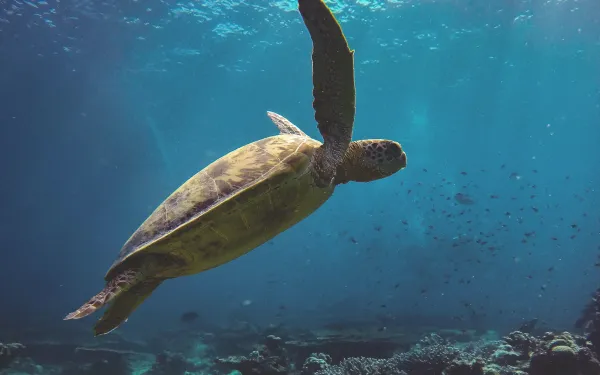
Agreement reached to advance High Seas Treaty
New Treaty agreed to protect half the planet but formal adoption still required. Late this evening governments meeting at the United Nations in New York reached agreement on key substantive issues for a new treaty to protect high seas marine life. To ensure this hard won progress is not lost, The High Seas Alliance is calling for the UN to conclude the formalities of adoption as soon as possible in the final resumed session. "Following a two week long rollercoaster ride of negotiations and super-hero efforts in the last 48 hours, governments reached agreement on key issues that will advance protection and better management of marine biodiversity in the high seas," said Rebecca Hubbard, Director of the High Seas Alliance. The high seas, the area of ocean that lies beyond countries’ national waters, is the largest habitat on Earth and home to millions of species. With currently just over 1% of the high seas protected, the new treaty will provide a pathway to establish marine protected areas in these waters. It is also a key tool to help deliver the recently agreed Kunming-Montreal target of at least 30% protection of the world’s ocean by 2030 that was just agreed in December- the minimum level of protection scientists warn is necessary to ensure a healthy ocean. But time is of the essence. The new Treaty will bring ocean governance into the 21st century, including establishing modern requirements to assess and manage planned human activities that would affect marine life in the high seas as well as ensuring greater transparency. This will greatly strengthen the effective area-based management of fishing, shipping and other activities that have contributed to the overall decline in ocean health. The issue of sufficient financing to fund the implementation of the treaty, as well as equity issues surrounding the sharing of benefits from marine genetic resources was one of the key sticking points between North and South throughout the meeting. However, right up to the final hours of the meeting, governments were able to land an agreement that provided for equitable sharing of these benefits from the deep sea and high seas. "It’s been a very long journey to get to a treaty. We will be looking to the 52 states that make up the High Ambition Coalition to lead the charge to adopt, ratify and identify important high seas areas to protect," said Hubbard. High Seas Alliance Member Quotes Gladys Martínez de Lemos, Executive Director, Interamerican Association for Environmental Defense (AIDA): "Governments have taken an important step that strengthens the legal protection of two-thirds of the ocean and with it marine biodiversity, the livelihoods of coastal communities and global food sovereignty. The agreement sets out a path for establishing areas of high and full protection on the High Seas, as well as for the environmental assessment of projects and activities that may harm this vast area." Laura Meller, oceans campaigner, Greenpeace Nordic: "This is a historic day for conservation and a sign that in a divided world, protecting nature and people can triumph over geopolitics. We praise countries for seeking compromises, putting aside differences and delivering a treaty that will let us protect the oceans, build our resilience to climate change and safeguard the lives and livelihoods of billions of people. We can now finally move from talk to real change at sea. Countries must formally adopt the treaty and ratify it as quickly as possible to bring it into force, and then deliver the fully protected ocean sanctuaries our planet needs. The clock is still ticking to deliver 30x30. We have half a decade left, and we can’t be complacent." Matthew Collis, Deputy Vice President for Policy, IFAW: "The agreement of a new Treaty to conserve the high seas is a wonderful way to celebrate World Wildlife Day for ocean animals and their high seas homes. IFAW congratulates governments on this significant step, which charts a course to protect 30% of the ocean by 2030. To achieve 30x30, governments must now adopt, ratify and implement the new Treaty without delay." Minna Epps, Director of Global Marine and Polar Programme, IUCN: "The High Seas Treaty opens the path for humankind to finally provide protection to marine life across our one ocean. Its adoption closes essential gaps in international law and offers a framework for governments to work together to protect global ocean heath, climate resilience, and the socioeconomic wellbeing and food security of billions of people." Lance Morgan, President, Marine Conservation Institute: "Coming on the heels of the Global Biodiversity Framework, this historic agreement is a huge step towards ensuring marine protected areas in the High Seas and reaching 30x30." Lisa Speer, Director of the International Ocean program, Natural Resources Defense Council (NRDC): "This text provides the basis for protecting key biodiversity hotspots in the high seas. We now have a pathway to achieve the goal of meaningfully protecting at least 30% of the ocean by 2030, a goal that scientists tell us is crucial to maintaining ocean health in the face of ocean warming, acidification and other impacts of climate change. Now let’s get started." Fabienne McLellan, Managing Director, OceanCare: "This Treaty will be the game-changer the ocean urgently needs. We particularly welcome the conservation focused elements, such as environmental impact assessments. EIAs are one of the most effective and important mechanisms to prevent, mitigate and manage harmful activities in cases where there is severe harm to marine life through, for instance, underwater noise pollution. While we advocated for more ambition in the EIA provisions, these requirements will nevertheless strengthen ocean conservation." Susanna Fuller, VP Conservation and Projects, Oceans North: "Following the Kunming Montreal Agreement, which sets out a global path for biodiversity protection, this treaty will bring a similar ambition to the high seas. Because Canada’s waters are bounded by three international ocean basins, it has an outsized role in ensuring that the treaty is fully implemented, once formally adopted." Liz Karan, Director of Ocean Governance project, Pew: "The effective implementation of this landmark treaty is the only pathway to safeguard high seas biodiversity for generations to come and provides a pathway for nations to fulfill the 30 by 30 target. Governments and civil society must now ensure that the agreement is adopted and rapidly enters into force." Christopher Chin, Executive Director, The Center for Oceanic Awareness, Research, and Education (COARE): "With this finalized text, the world is now one great step closer to embracing the importance of the High Seas, and to achieving the 30x30 objectives. Once adopted, however, member States must still ratify the treaty, and we call upon them to do so swiftly." Andrew Deutz, Director of Global Policy, Institutions & Conservation Finance, The Nature Conservancy: "While the treaty leaves room for improvement, we should nevertheless celebrate the fact that –after more than a decade of discussions and three concerted attempts to wrestle it across the line – we finally have a global framework in place for the conservation and sustainable use of biodiversity for almost half of our planet’s surface. Whether this has arrived in time to slow the accelerating ecological crisis happening in our ocean will depend on how quickly countries can ratify the treaty at national level and start mainstreaming ambitions like 30x30 into both their own decision-making, and that of the global bodies which manage human activity on the high seas. If they can do so swiftly, putting people and planet above politics, we may yet have a chance to move beyond the damaging status quo and into a new era of nature-positive stewardship for this most critical of ecosystems." Farah Obaidullah, Ocean Advocate and Founder, Women4Oceans: "This is an historic moment for humanity and for the protection of all living beings in our global ocean. A rare and welcome moment of hope for all of us rightfully concerned with the state of the world. Almost half our planet will now have a chance of some sort of protection from the ever-increasing onslaughts to the ocean. This treaty comes not a moment too soon. With the climate and global wildlife crises worsening and a reckless new industry of deep-sea mining on the horizon, we cannot afford any delays in putting this treaty into force." Press contacts: Patricia Roy (EU), +34 696 905 907 Michael Crocker (US), +1 (207) 522-1366 Mirella von Lindenfels, + 44 7717 844 352 Julio Whalen-Valeriano (UN), +1 (850) 292-4689
Read more